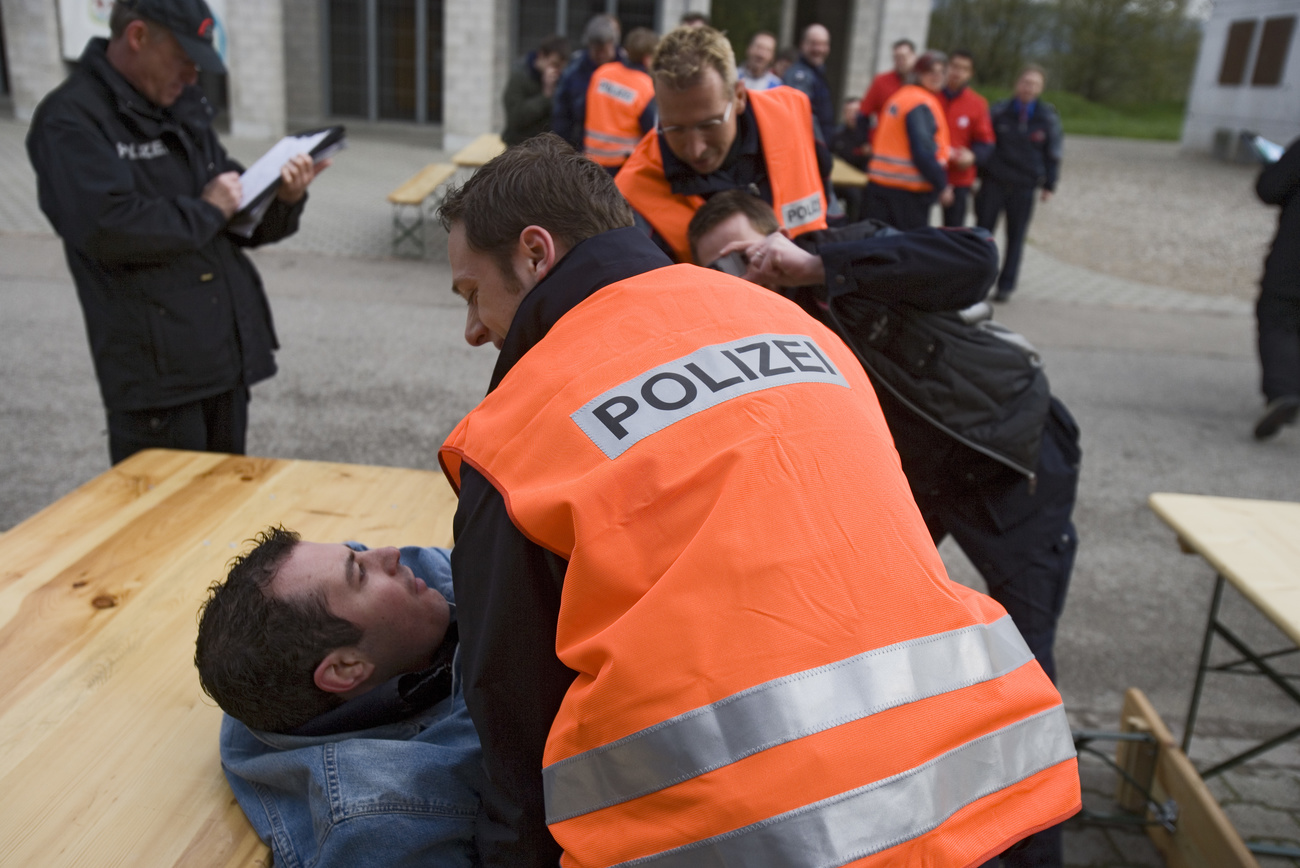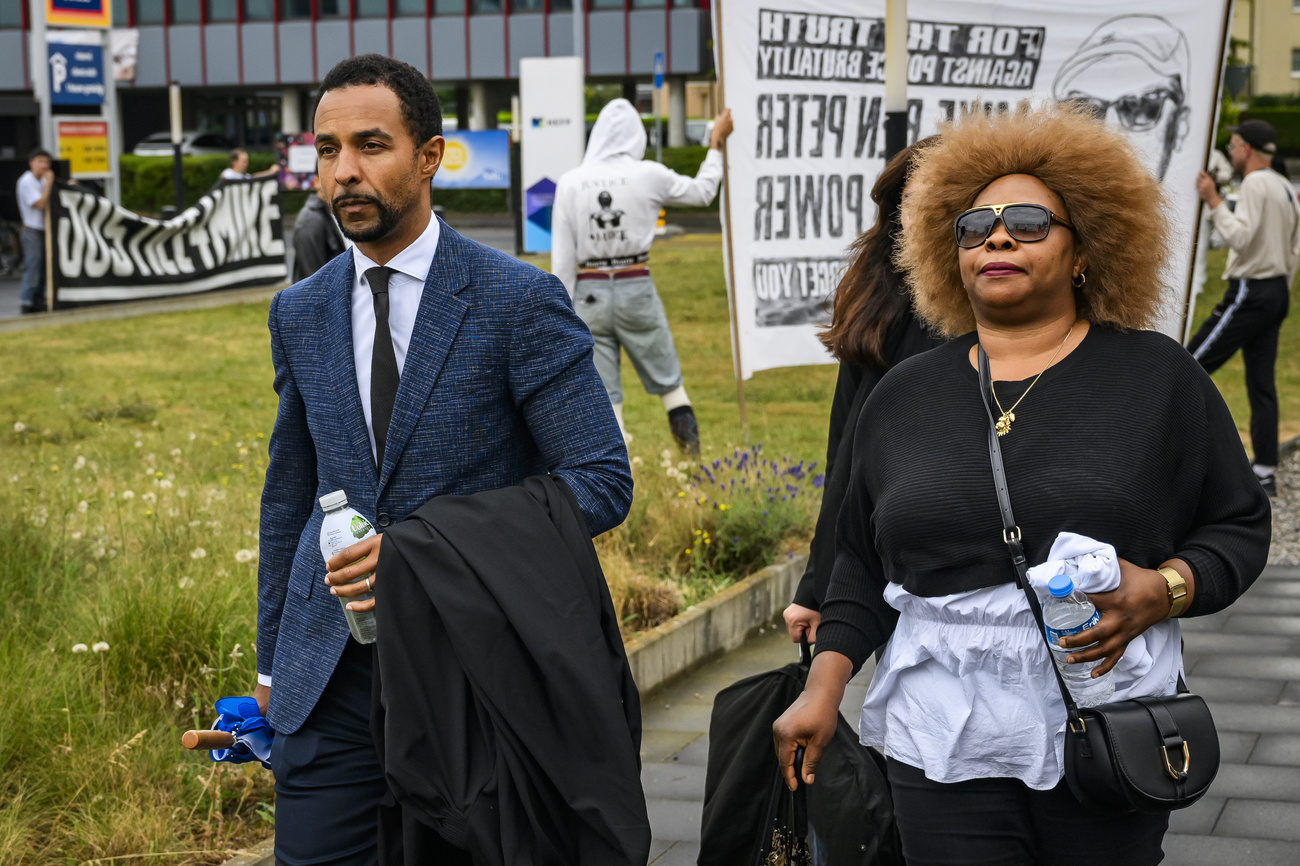
Swiss police cry foul over citizen filming of arrests

Police say they are being misrepresented by filming of arrests by members of the public, with some voices calling for restrictions on video content being made public.
“If police actions are so blatantly distorted every time, a ban on videos during police operations can no longer be taboo,” Harald Zsedényi, vice-president of the Basel city police force told the NZZ am Sonntag newspaper on Sunday.

More
Nigerian man’s death: family appeal acquittals of Swiss police
The report cites politicians supporting the idea in parliament, but also includes voices of opposition, such as Amnesty Switzerland.
Police around the world are increasingly being filmed by smartphones and other devices during arrests or when performing crowd control. In some countries, video evidence has led to civil unrest and action being taken against officers.
Giovanni Garra, vice-president of the Zurich city police force, complains that some video clips are edited to highlight force being used by police while important contextual information can be left out.
Garra says the phenomenon of clips appearing on social media frustrates many officers who feel misrepresented. “Having to reckon on being filmed at every arrest is a stress factor,” he said.
Garra suggests that more officers should wear bodycams to balance up the available video evidence.
Lucerne recently issued scarves to police officers that could be pulled over their faces to protect their identities whilst on duty, notes the NZZ am Sonntag.
But other parties believe citizen filming is a legitimate means to monitor alleged police violence in the absence of meaningful research or statistics.
“We keep getting indications of disproportionate use of force in arrests or other police operations,” said Michael Ineichen, head of advocacy at Amnesty Switzerland.
“Because police implement the state’s monopoly on the use of force, they have to face critical public scrutiny.”

In compliance with the JTI standards
More: SWI swissinfo.ch certified by the Journalism Trust Initiative




























You can find an overview of ongoing debates with our journalists here . Please join us!
If you want to start a conversation about a topic raised in this article or want to report factual errors, email us at english@swissinfo.ch.